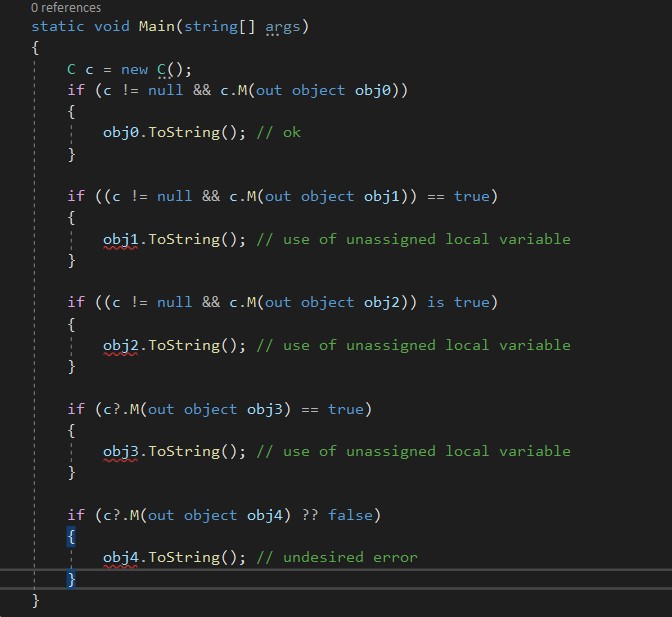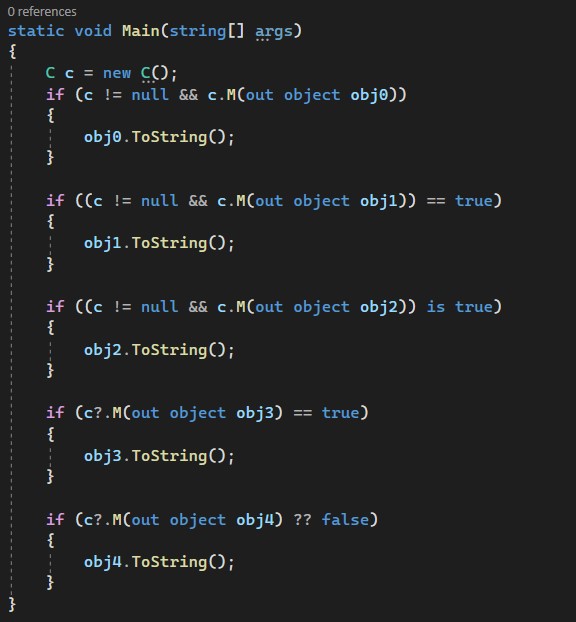Improved Definite Assignment
- C# requires
definite assignmentwhich means variables must be initialized or assigned to before they are used. - Prior to C# 10, there were many scenarios where definite assignment and null state analysis produced compile errors in the following scenarios
- Comparison to bool constant
- Comparison between a conditional access and a constant value
- Conditional access coalesced to a bool constant
- Conditional expressions where one arm is a bool constant
The following code generates error
public class C
{
public bool M(out object obj)
{
obj = new object();
return true;
}
}
C c = new C();
if (c != null && c.M(out object obj0))
{
obj0.ToString(); // ok
}
if ((c != null && c.M(out object obj1)) == true)
{
obj1.ToString(); // error use of unassigned local variable
}
if ((c != null && c.M(out object obj2)) is true)
{
obj2.ToString(); // error use of unassigned local variable
}
if (c?.M(out object obj3) == true)
{
obj3.ToString(); // error use of unassigned local variable
}
if (c?.M(out object obj4) ?? false)
{
obj4.ToString(); // error use of unassigned local variable
}

C# 10 Improvements
From C# 10, these scenarios don't generate compile errors.
